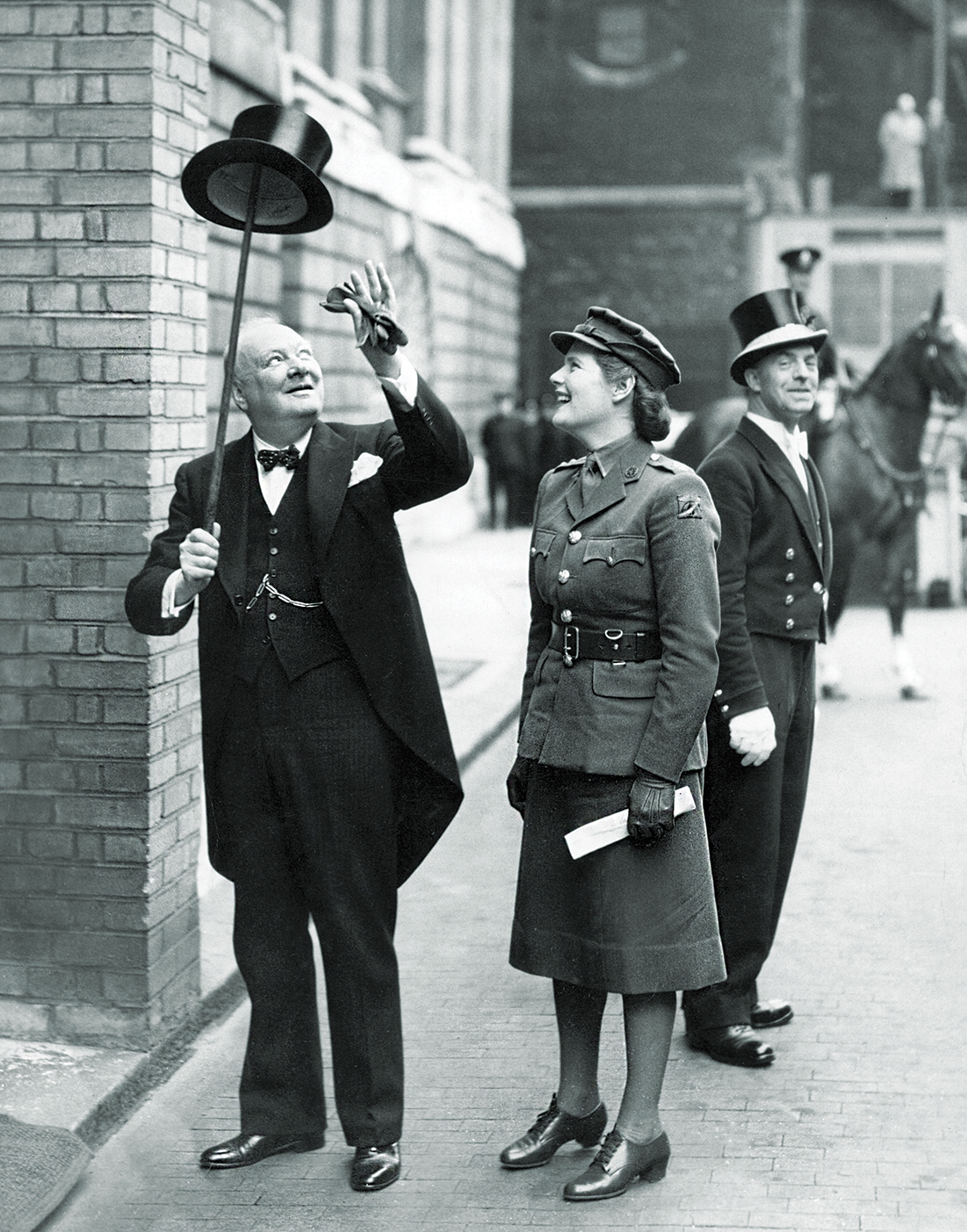Erik Larson is a bestselling writer, but he’s a father first and foremost: “My three daughters tend to see me as the king of anxiety,” he laughs. While researching London in World War II, Larson envisioned parenting amid the looming threat of German invasion. “How do you go about dealing with that?” he wondered. This question partially inspired his latest work, The Splendid and the Vile: A Saga of Churchill, Family, and Defiance During the Blitz. The book debuted in February 2020, going on to spend much of the year on the weekly New York Times Best Sellers List for Nonfiction.
The Splendid and the Vile unfolds in 1940-41 as Winston Churchill, England’s newly appointed prime minister, stands strong against Hitler amid a seemingly endless spree of German bombing raids. Churchill’s legacy often inspires hagiography; aware of the historical tropes, Larson aimed to instead provide a humanizing look inside Churchill’s inner circle—a glimpse of the prime minister as a leader, a military strategist, a friend, and, yes, a family man.
You’ve now written six works of historical nonfiction, two of which are set during World War II. Was this a coincidence?
There was absolutely no connection between the two. I don’t come at my books from a desire to write about a particular period. I’m very story-driven.
What was the story you wanted to tell in The Splendid and the Vile?
How the people of London survived Germany’s air bombardment throughout the first year of Churchill’s premiership. My wife and I moved to New York City from Seattle in 2014 after our kids flew the coop. There, I had this epiphany: the experience of 9/11 in New York had been so different from what I experienced out West. I then started thinking about what it would have been like to have endured essentially 57 9/11s in a row—the first phase of the Blitz—followed by six more months of raids.
You considered letting this story unfold through the eyes of a typical London family. Then you landed on perhaps the most iconic London family outside the House of Windsor: the Churchills.
I didn’t really appreciate up front just how much material there is about Winston Churchill. I told my daughter what I was working on, and she looked at me and said, “Dad, what are you doing? Have you lost your mind? What can you possibly say that’s new about him?”
That line kept on running through my head every day for the next four and a half years. This wasn’t a bad thing, because I felt driven to find new material and tell his story in a fresh way.
How did you do that?
I think my personal vision of Churchill is more nuanced than some other portrayals. You gain a cartoonish sense of him if you only watch Darkest Hour or The Crown. And if you read “great men” biographies in which he’s portrayed as master strategist of the war, you forget about his personal life. Churchill’s personal life was front and center for me. That’s how this book is different.
Churchill’s family and friends are featured prominently. His youngest daughter, Mary, provides commentary via a newly tapped source: her diary.
Access to the diary was controlled by Mary’s family. Much to my delight, I was given permission to look at it. She was a wonderfully charismatic person with an acute ability to measure the world around her. Unlike some other diarists, she had absolutely no thought that her observations would one day be of public interest.
What’s the story behind the book’s title?
I derived the title from the diary of John Colville, Churchill’s private secretary. Colville witnessed an air raid unfold from a bedroom window, and he was struck by its sheer malignant beauty. He referred to it as this juxtaposition of “natural splendor and human vileness,” and I thought that was a lovely statement. Nearly right away that became the title of the book.
Even with imminent destruction looming, the characters you explore in The Splendid and the Vile still experienced joy—and had plenty of fun.
Churchill could be an awful lot of fun. One of my favorite scenes in the book is a get-together at Chequers, the prime minister’s country house. Churchill, wearing a blue siren suit and a gold silk dressing gown, gets out his bayonet. As martial music plays on the gramophone, he proceeds to do his drills in the Great Hall. His many guests are either awestruck or laughing hysterically.
Churchill was a dichotomy: the life of the party, but also a resolute leader. Where do you think he gained his confidence?
You know, I have thought about that. It comes down to that fundamental element that makes people who they are: character. Where does character come from? Is it taught? Is it learned? Is it absorbed? I don’t know. But Churchill did have this unshakeable confidence—not just in Britain, but in himself—throughout his career. I think on some level he knew that at some point he would be prime minister.
He seemed to relish the prospect of coming into power amid a global crisis.
Churchill was a man of action. To him, what compounded the satisfaction of becoming prime minister was that he became this leader when he could lead the empire into and through an evolving war. That was part of the thrill for him. ✯
This article was published in the December 2020 issue of World War II.





